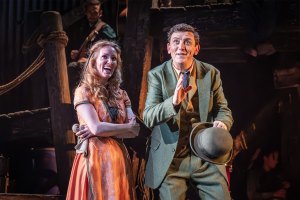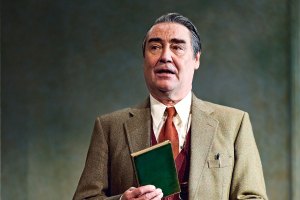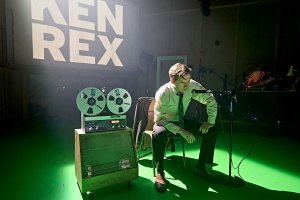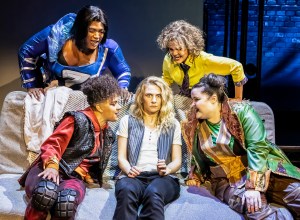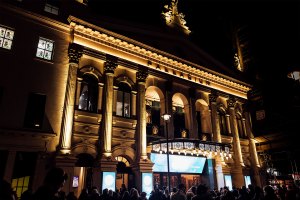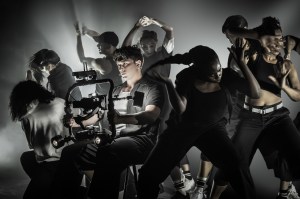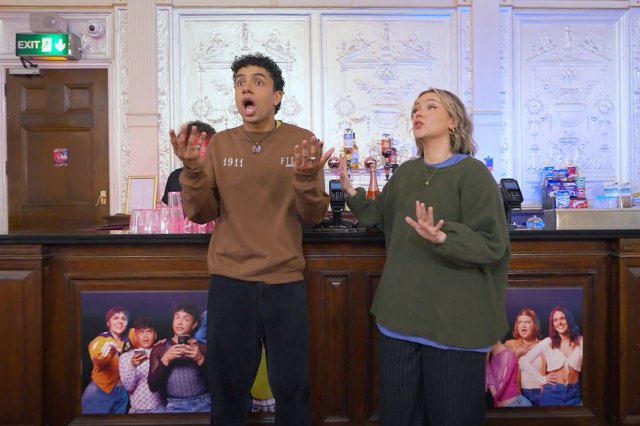Review: Brodsky/Baryshnikov (Apollo Theatre)
Dancer Mikhail Baryshnikov pays tribute to his friend, Nobel laureate Joseph Brodsky
Mikhail Baryshnikov had many qualities when he was forging a career as one of the greatest male dancers the world has ever seen. First and foremost, of course, was his phenomenal physical ability, which meant he made everything look easy, however hard it was. But two qualities also stood out from the very beginning: the precision of his movement, its sense of centre and purpose and the pure quality of curious intelligence that drove his dancing and his choices.
Both these are on display here, in Baryshnikov’s tribute to his friend, mentor and fellow Russian exile, the poet Joseph Brodsky, who died in 1996 at the age of 55. Performed entirely in Russian, it is a gift from one great artist to another, a debt of love. In his programme essay Baryshnikov describes how they met at a house party in New York, just after he had fled the USSR in 1974; Brodsky had been expelled two years earlier. From then on, they talked every day for 20 years, speaking for the last time just hours before Brodsky’s death.
None of this autobiography is contained in this austerely beautiful staging, directed by Alvis Hermanis. But the deep feelings of friendship shine through.
Baryshnikov, now 69, is dressed in jacket, waistcoat and loose trousers, as he walks onto a stage through the doors of a dilapidated a glass conservatory, reminiscent of those you see in St Petersburg, where both men grew up (though it was called Leningrad at the time). Settling on a bench at the front, he takes out an alarm clock and two books and begins to read. Surtitles above the structure help the non-Russian speakers in the audience; we are in a minority, I would say.
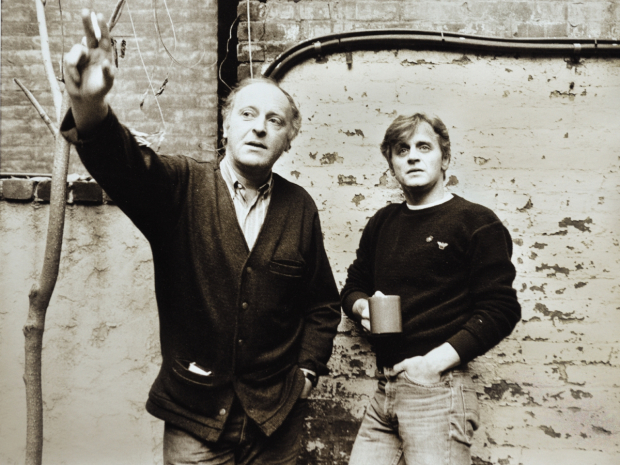
(© Courtesy Leonid Lubianitsky)
You can hear a pin drop as the 90-minutes unfolds. Baryshnikov’s voice is poetic and flexible; the language springs off the page. His voice is supplemented by recordings of Brodsky himself reading, a spooled tape recorder revolving on a second bench to reveal the source of the sound. His delivery is more rasping and urgent. The poems are devastating, full of meditations on exile, on Russia, on sorrow and death, but also displaying a profound sense of the way you must live life, the moral and spiritual choices asked of you.
The images are vivid too and at intervals, Baryshnikov goes into the summer house, and with characteristic, thoughtful exactitude moves to the words in different styles of half-dance. To a poem that talks about a black stallion, he sketches sharp strokes of flamenco, that evoke the spirit of the poem rather than embodying it. At other moments, he becomes a faun with a swift gesture of his arm, or a centaur holding a chair. He weaves his arms across his body to suggest the scent of a flower. He takes off his jacket and rolls up his trousers and becomes old. Towards the close, he lies across the chair, in carefully calibrated extensions and retractions.
"Life is the sum of tiny movements," Brodsky says. And that is what Baryshnikov shows, whether folding away his glasses, or painting the panes of the windows in pale whitewash that looks like the fog in the lines he is speaking.
I suspect your reaction to the evening depends very much on your reaction to the poetry. I found myself overwhelmed by its melancholy loveliness and profundity. And I could watch Baryshnikov move on a stage for ever. So for me, the entire event was a serious pleasure and I was not alone. The only time the audience broke its silence was to applaud rapturously and lengthily at the close. It felt very Russian, very philosophical and very moving.
Brodsky/Baryshnikov ran a the Apollo Theatre form 3 to 6 May.




